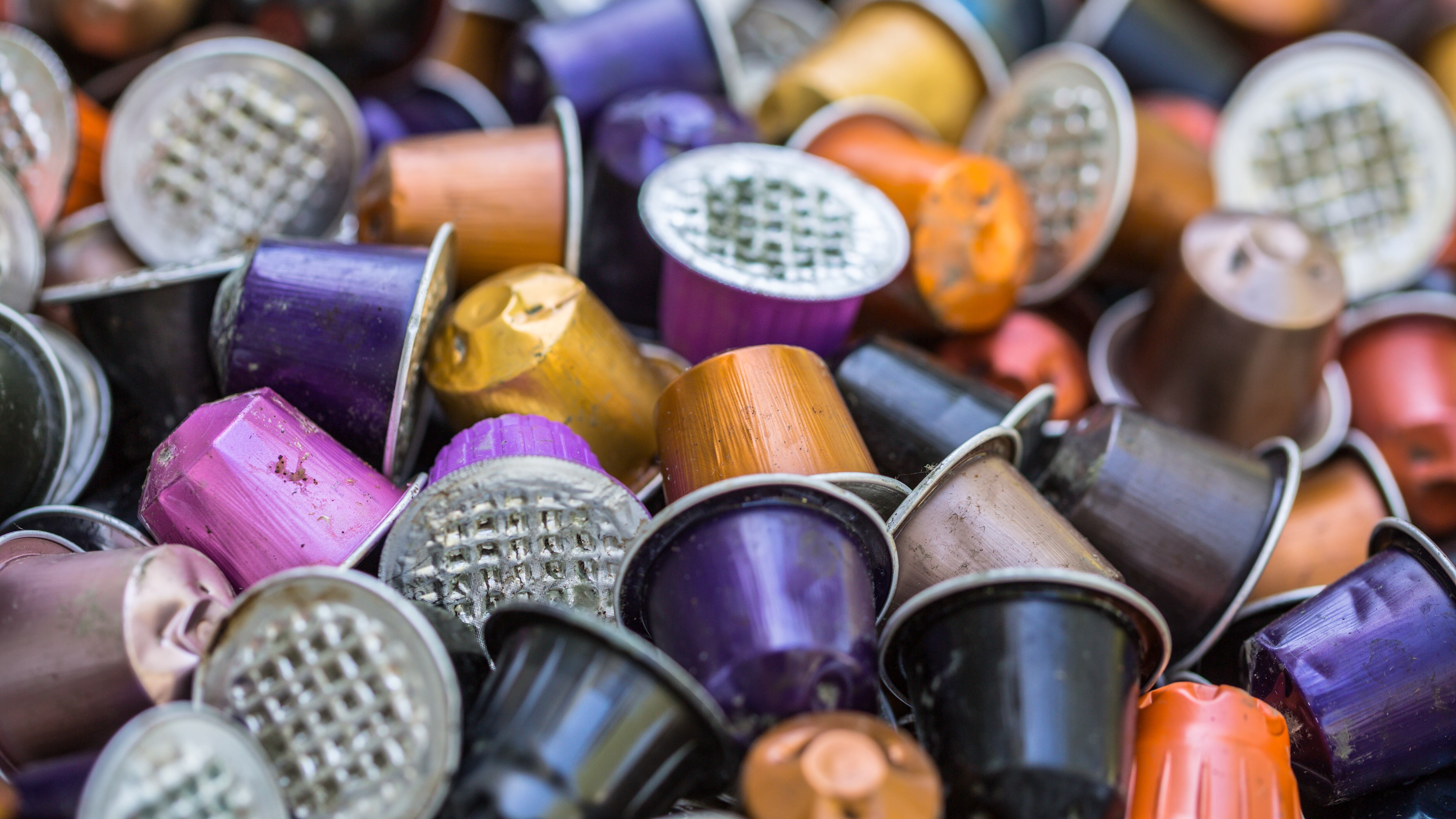I saw an ad for compostable coffee pods that claimed we throw away enough pods each week to encircle the earth. Is that true? Will compostable pods solve the problem? And why are ad copywriters so obsessed with things encircling the earth in the first place? —Compost Ben
The problem of coffee pod waste puts humanity in a dilemma: On the one hand, there’s the desire to avoid drowning the planet in fish-choking, nonbiodegradable waste. On the other, there’s the soul-searing agony of manually spooning coffee into the coffee filter with a hand-operated scoop, like a caveman. (Don’t even go there with the beans and the electric grinder—what are you, Amish?) Confronted with such intractable options, the choice is all but impossible.
But maybe we don’t have to make it! Compostable (or recyclable) coffee pods offer the prospect of guilt-free convenience. Wouldn’t it be nice if you could enjoy your morning coffee in peace, without having to worry that the spent pod will wind up lodged in some endangered sea turtle’s colon?
Well—as the sea turtle itself might say—tough shit. Coffee pods remain stubbornly resistant to environmental mitigation. Even the minority made with reusable plastics are too small for conventional recycling operations. Some manufacturers do let you mail in your used pods for in-house recycling, but let’s be honest: You’ll never do it.
There’s no minimum size for composting, but don’t get your hopes up for that, either. Most pods touted as compostable are really only “commercially compostable,” which isn’t the same as the eggshells-and-banana-peels procedure you’re used to. All it really guarantees is that a process exists—somewhere—by which the pods could, in theory, be composted.
Unfortunately, commercial composting of bioplastics is complex, energy-intensive and—perhaps most importantly—not widely available. Curbside customers in Portland don’t have access to it, for example. Portland’s Bureau of Planning and Sustainability specifically asks consumers NOT to put bioplastics in their compost bin—not only are they noncompostable themselves, they contaminate the otherwise good compost they get mixed in with.
There is one company in the U.K. that appears to be making conventionally compostable pods, but the product isn’t available in U.S. stores. For now, Americans’ sustainable coffee pod options are mostly limited to greenwashed virtue signaling. If it’s any consolation, though, I’m told that if all our performative environmental gestures were laid end to end, they could encircle the earth!
Questions? Send them to dr.know@wweek.com.

